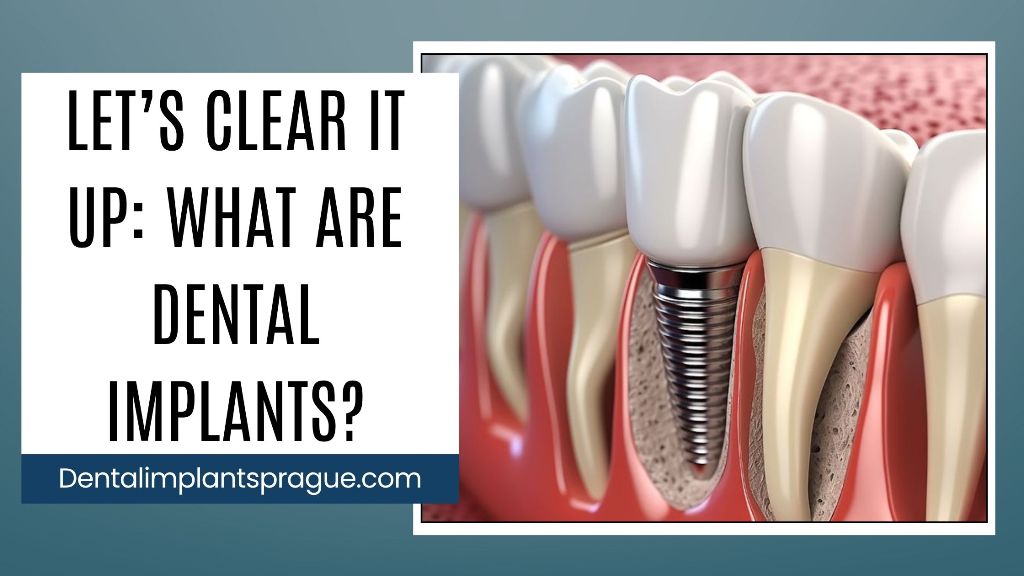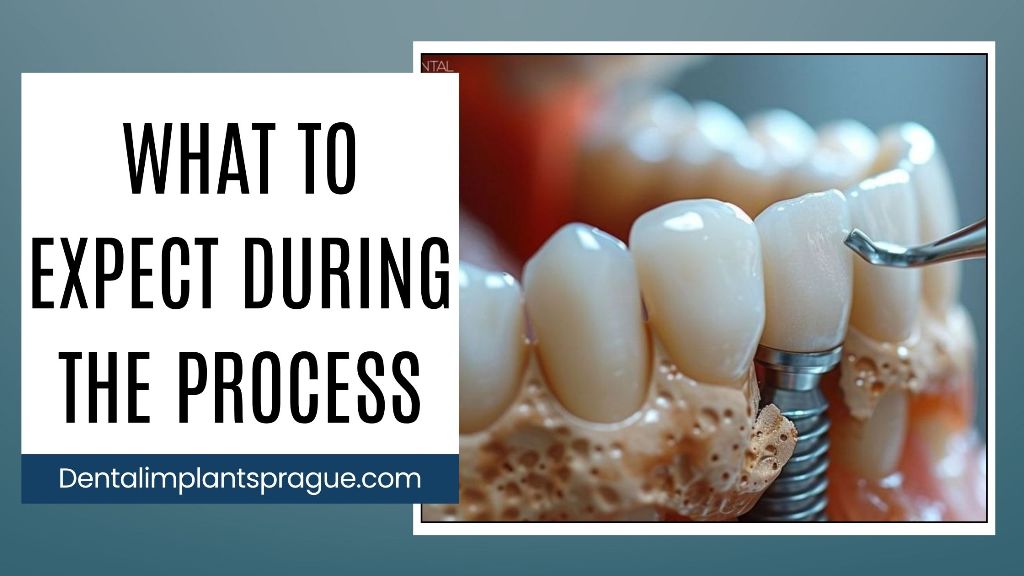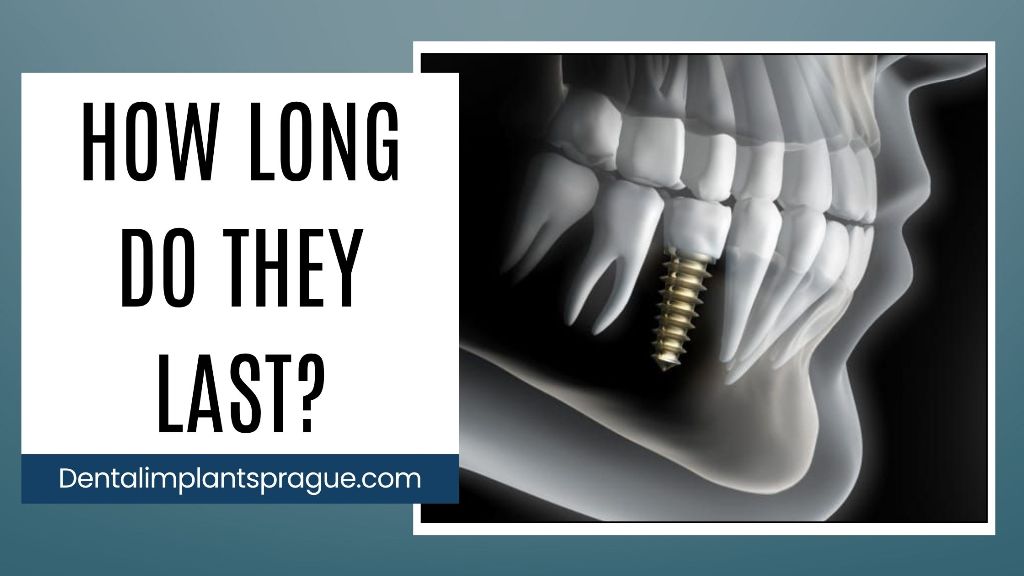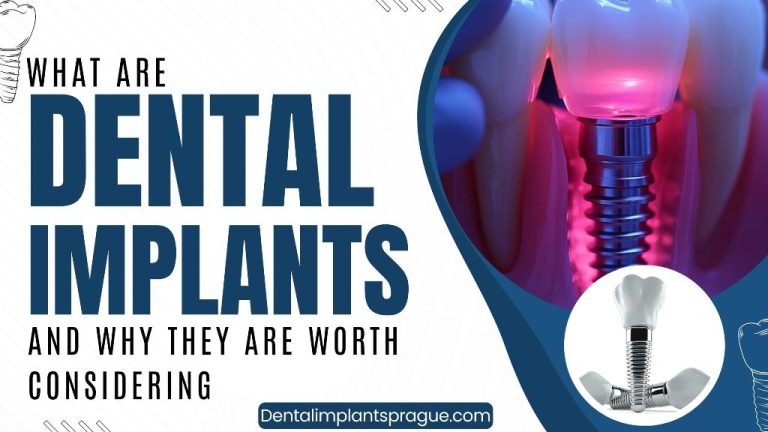Losing a tooth is never just about the gap it leaves behind. It can impact how you chew, how you speak, and even how you feel about yourself in social situations. If you’re exploring options to replace missing teeth, you’ve likely come across the term dental implant more than once. So, let’s talk openly about what they really are, how they work, and why they continue to stand out as one of the most reliable solutions in modern dentistry.
Let’s Clear It Up: What Are Dental Implants?

A dental implant is a small titanium post that’s surgically placed into your jawbone where a tooth is missing. Think of it as a sturdy artificial root that becomes the base for a replacement tooth. Once the implant fuses with the bone—a process called osseointegration—it acts just like the root of a natural tooth. A crown, bridge, or even a full denture is then placed on top, depending on how many teeth you need to replace.
Unlike removable dentures or traditional bridges that sit above the gumline or rely on neighboring teeth, dental implants are embedded directly into the jawbone. This makes them stable, secure, and longer-lasting than most other options.
Why Are People Choosing Dental Implants?

Tooth loss affects more than appearance. Missing teeth can lead to bone loss, shifting of surrounding teeth, changes in facial shape, and even problems with digestion if your chewing ability is compromised.
That’s where dental implants come in. They aren’t just about closing a gap—they address the deeper problems caused by missing teeth. Once implanted, they stimulate the jawbone just like natural roots do, helping to maintain bone structure and prevent that “sunken” look that often comes with long-term tooth loss.
You might be thinking, “Can’t dentures or bridges do the job?” Sure, they can restore basic function and aesthetics, but they don’t offer the same level of strength or support. Over time, dentures may slip, feel uncomfortable, or require regular adjustments. Dental implants, on the other hand, are fixed and feel much more like your own teeth.
The True Importance of Dental Implants in Oral Health

What often gets overlooked is how missing teeth affect overall dental health. Let’s say you’ve lost one molar. It may not seem like a big deal at first, especially if it’s not visible. But that empty space encourages neighboring teeth to drift, leading to bite misalignment, jaw strain, and even headaches.
By replacing the missing tooth with a dental implant, you preserve the balance and spacing of your teeth. This prevents other complications from developing. It also makes daily oral hygiene more effective since crowded or tilted teeth are harder to clean.
For patients with multiple missing teeth, implants can anchor bridges or full-arch restorations, giving them the confidence to eat, smile, and speak without hesitation.
What to Expect During the Process

Let’s break down the experience. Getting a dental implant isn’t a same-day fix, but the steps are straightforward. After an initial consultation and scan, your dentist will assess your bone density to make sure the implant has a solid foundation. If the bone is too thin, a graft may be suggested first.
Once everything’s ready, the implant is placed under local anesthesia. Over the next few months, it fuses naturally with the bone. After that healing period, the abutment and crown are placed—restoring both function and appearance.
Most patients are surprised by how comfortable the procedure is. And once the final tooth is in place, the difference is immediate. No movement, no awkward slippage—just a natural-feeling tooth that fits your mouth perfectly.
How Long Do They Last?

Here’s the part many patients love: dental implants can last decades. With proper oral hygiene and regular checkups, many people keep their implants for life. Crowns may need to be replaced due to normal wear, but the implant itself can stay put for the long haul.
Compare that with traditional bridges, which usually need to be replaced every 10–15 years. Or dentures, which often require relining as the jawbone changes shape. Over time, dental implants not only offer better performance but also better long-term value.
Are There Any Risks?

Like any medical procedure, there are some risks involved, though they’re minimal. Infections, nerve sensitivity, or implant failure can occur—but these are rare, especially when the procedure is done by experienced professionals and after thorough assessment.
Smokers or those with certain chronic conditions may face a slightly higher risk of complications. But even in those cases, a conversation with a qualified dentist can determine the best path forward.
Who Should Consider Dental Implants?

If you’ve lost one or more teeth and want something that feels natural, looks great, and holds up over time, dental implants deserve your attention. They’re ideal for adults of all ages who are healthy enough for minor oral surgery and have sufficient jawbone to support the implant.
Even if you’ve been wearing dentures for years or think you’re too old, don’t count yourself out. Many older adults have successfully transitioned from dentures to implants and are thrilled with the results.
Why I Recommend Them to Patients

As someone who works closely with patients at dentalimplantsprague.com, I’ve seen firsthand how life-changing this option can be. It’s not just about replacing teeth—it’s about restoring confidence, comfort, and the ability to enjoy simple things like eating a crisp apple or laughing without holding back.
We’ve helped hundreds of people find the right implant solution based on their individual needs, goals, and budgets. Our approach is always personal, backed by advanced diagnostics and an experienced team that makes every step feel less overwhelming.
Final Thoughts
If you’ve been wondering, What Are Dental Implants, I hope this article has given you more than just a definition. It’s given you insight into why so many people choose them—not just for their smiles, but for their health and quality of life.
Whether you’re dealing with one missing tooth or several, this option is absolutely worth a closer look. The importance of dental implants lies in what they give back: stability, strength, and the chance to smile without second-guessing. If you’re ready to learn more or explore your options in Prague, visit dentalimplantsprague.com. Our team is here to guide you—clearly, honestly, and with your best interest in mind.

